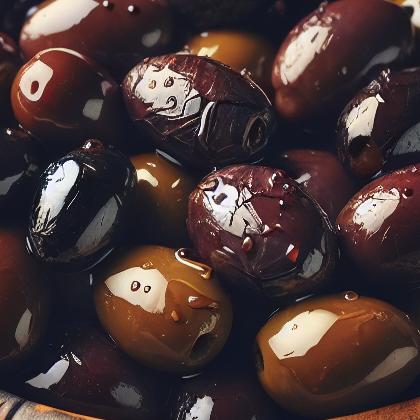Showing results for 'Dry olive'
close
Dry Olive

The olive is a species of small tree in the family Oleaceae, found in much of Africa, the Mediterranean Basin from Portugal to the Levant, the Arabian Peninsula, and southern Asia as far east as China, as well as the Canary Islands, Mauritius and Réunion. The species is cultivated in many places and considered naturalized in Algeria, France (including Corsica), Greece, Turkey, Cyprus, Malta, Croatia, Slovenia, Albania, Crimea, Egypt, Iran, Iraq, Israel, Italy, Argentina, Jordan, Morocco, Spain, Palestine, Syria, Saudi Arabia, Tunisia, Lebanon, Java, Norfolk Island, California and Bermuda.
Dry olive Pairs With:
Food Item
Flavor Affinity Level
Dry olive Properties:
| Food Property | Type | Description |
|---|---|---|
| Flavor Profile | Bitter | Dry olives have a bitter taste due to the presence of certain compounds like oleuropein. |
| Texture | Dryness | Dry olives have a dry texture, as they have been dehydrated to remove moisture. |
| Nutritional Value | Macronutrients | Dry olives contain fats and some proteins, making them a source of energy. |
| Micronutrients | Dry olives are rich in vitamins and minerals such as vitamin E and iron. | |
| Fiber | Dry olives are a good source of dietary fiber, which aids in digestion. | |
| Color | Natural Pigments | Dry olives have a dark, purplish color due to the presence of natural pigments like anthocyanins. |
| Aroma | Volatile Compounds | Dry olives have a strong aroma due to the presence of volatile compounds like terpenes and aldehydes. |
Food Pairing App - Version 1.2.0
